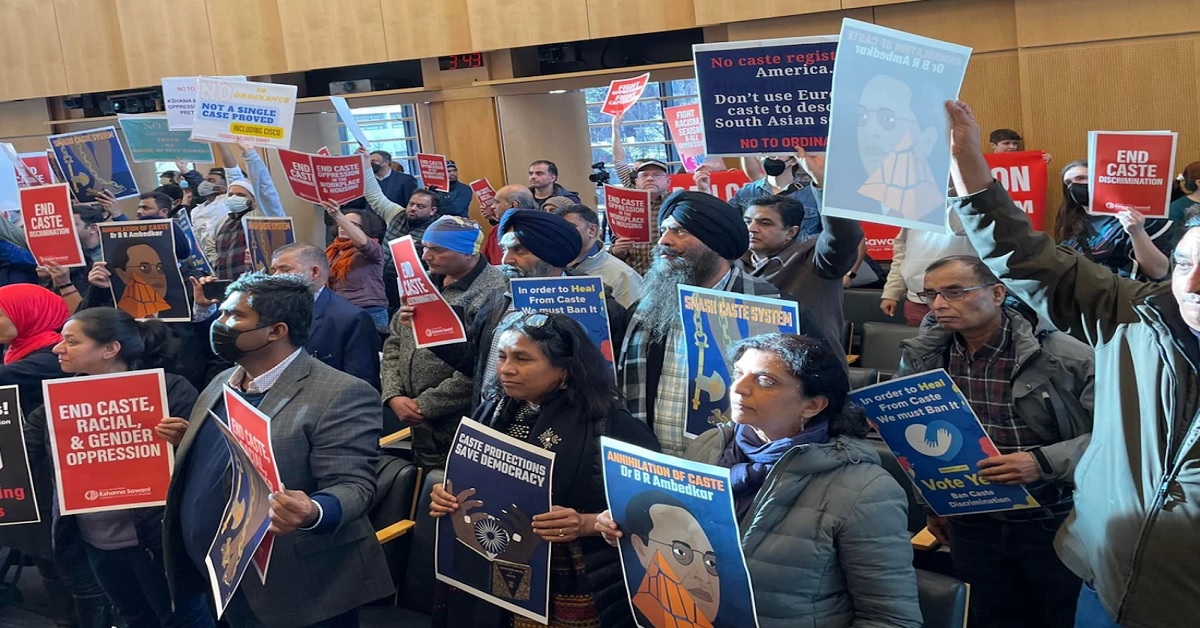Academics and civil rights activists have welcomed a landmark judgment by a US federal court upholding the California civil rights department’s constitutional authority to defence caste-oppressed individuals through state action.
The US District Court for the Eastern District of California in its ruling on July 18 in response to an allegation by the Hindu American Foundation that had claimed that the California civil rights department’s enforcement of anti-caste policies violated the “constitutional rights of all Hindu Americans,” dismissed HAF’s contention.
While dealing with the allegations, the court dismissed the allegation, stating that HAF had neither standing nor any valid arguments to pursue the case. The judge also said that HAF was being hypocritical in claiming that caste is not integral to Hinduism, while also claiming caste-based protections infringe on Hindu religious rights.
The Ambedkar King Study Circle, USA (AKSC) – a California-based anti-caste and social justice organisation – has called the ruling is not only a legal win, but “a major victory for civil rights and social justice.”
The AKSC, in its statement on behalf of the Savera coalition in the US – a platform bringing together a multiracial, interfaith, anti-caste organisations and activists – writes that the ruling has four visible outcomes:
- It affirms the California civil rights department’s constitutional power to take legal action on behalf of caste-oppressed individuals facing discrimination.
- The court stated that the civil rights department’s litigation – such as in the Cisco case – is legitimate state action.
- The court ruled that the civil rights department’s actions do not violate the religious rights, equal protection, or due process of Hindu Americans and said that the HAF’s argument was “entirely unpersuasive.”
- The court rejected HAF’s claim to represent “all Hindu Americans,” noting the organisation failed to demonstrate any actual activities, funding mechanisms, or engagement with the broader Hindu American community that would grant it standing in this case.
The judgement dismissed the Second Amended Complaint filed by HAF and eight individuals in September 2024 against California civil rights department director Kevin Kish.
“The court’s judgment makes it clear that enforcing civil rights laws does not infringe on religious liberty. This decision sends a strong message: caste-based exclusion and abuse have no place in our institutions, and those impacted can seek justice under the law in the USA,” Karthikeyan Shanmugam, convenor of the AKSC, said.
Roja Singh, who is president of the Dalit Solidarity Forum, stated that the judgement shows that “the decades-long campaign of caste-based oppression in the US is finally being confronted.”
Related:
Unsealed: Suhag Shukla’s Deposition in Hindu American Foundation’s Failed Defamation Case Against Us
Debunking Myths: A Critical Analysis of Hindu American Foundation’s Ram Temple Narrative

